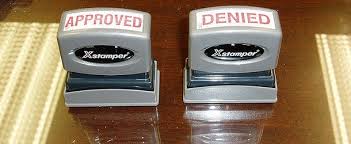 Underwriting hard money loans is a bit different than underwriting conventional loans, but there are many similarities. It is still underwriting.
Underwriting hard money loans is a bit different than underwriting conventional loans, but there are many similarities. It is still underwriting.
As with any loan file, underwriters review every piece of the entire file and determine answers to obvious questions regarding debt ratios or debt servicing, down payment, and exit strategy. The underwriter may offer immediate funding approval, or may request additional documentation from the borrower.
Just like with traditional loans, underwriters may identify conditions for funding a loan. A borrower may have a loan approval in hand, but typically there will be final conditions before funding the loan.
The amount of time it takes an underwriter to complete the task depends on a variety of factors. These include, but are not limited to, the deadline for funding, the process and effectiveness of the lender and the complexity of the transaction. In commercial hard money lending, underwriting can sometimes be completed in one or two days. On a more complex commercial hard money loan, underwriting can take as long as two weeks, particularly if a commercial loan transaction has multiple properties being crossed or title issues.
Fortunately, there are ways to get your commercial hard money loan through underwriting faster, and the following tips should help.
Make sure you understand the process, specifically the underwriting process, of your chosen commercial hard money lender. Because every lender has a different process and procedure for funding loans, don’t assume it’s the same as a lender you may have used on previous loan transactions.
In addition, be clear about typical turnaround times, and try to get a few references from other commercial mortgage brokers who have previously closed loans with the lender under tight time frames. Do not be afraid to ask questions. If you are not sure about something in the process, take the time to understand it.
In traditional lending, commercial mortgage brokers will paper a lender to death. In commercial hard money lending, the focus tends to be primarily on the asset and secondarily on the borrower. The rule for submitting files to an underwriter on a commercial hard money loan is to only provide the documentation that is requested — nothing less, nothing more. It is a good idea to have all of the other documentation waiting on the sidelines, should an underwriter request it, but resist the urge to do the same thing you would do on a traditional loan submission.
Every good commercial mortgage broker has learned to anticipate what an underwriter will request to see on a loan file and have it ready. Just as with any loan type, when submitting your loan file to an underwriter on a commercial hard money transaction, anticipate any concerns that may arise, or questions that a loan file may not answer.
If necessary, be proactive and get additional documentation before it is requested. But again, resist the urge to submit more documentation than has been requested by your underwriter on a commercial hard money loan, because this may slow down underwriting. Have all of the additional documents waiting in the wings, but do not submit them unless the underwriter specifically requests them.
The best way to explain something in a file is to be prepared with a letter of explanation, which explains issues such as slowdowns in business revenues, personal circumstances that led to credit problems, or any other red flags that may arise. Get these letters in advance from your borrowers with their signatures at the bottom, and have the letters ready and waiting for when questions arise.
In addition, be proactive about identifying and addressing any title-related issues early on, even before a loan goes into underwriting. Because title issues, even transfers of title, can add days or weeks to the underwriting process, paying attention to the information on a preliminary title report can be one of the most important things that a commercial mortgage broker can do to speed up underwriting. Nothing is worse than getting a loan through underwriting just to discover something on the title that could have been managed before submitting the loan.
This is the same as with traditional loans. If your underwriter needs missing bank statements, or finds several pages missing in a lease agreement, don’t wait several days to come up with these documents. This will only add time to the underwriting process.
In addition, make sure your borrower is easily accessible for questions or conditions from the underwriter. When an underwriter has a question or condition for funding, borrowers who are away on vacation certainly won’t help speed up the loan underwriting.
Although the underwriting process in traditional lending and that of hard money lending are similar, there are some distinct differences. By paying attention to those distinctions and preparing your loan file for submission accordingly, you may get your loan funded faster. For more information, please feel free to call or email: 760-845-9035 or MichaelCushner@CushnerCapitalGroup.com.
DRE# 00865708/NMLS# 305266
Don’t forget to Like us on Facebook & Follow us on Twitter!
